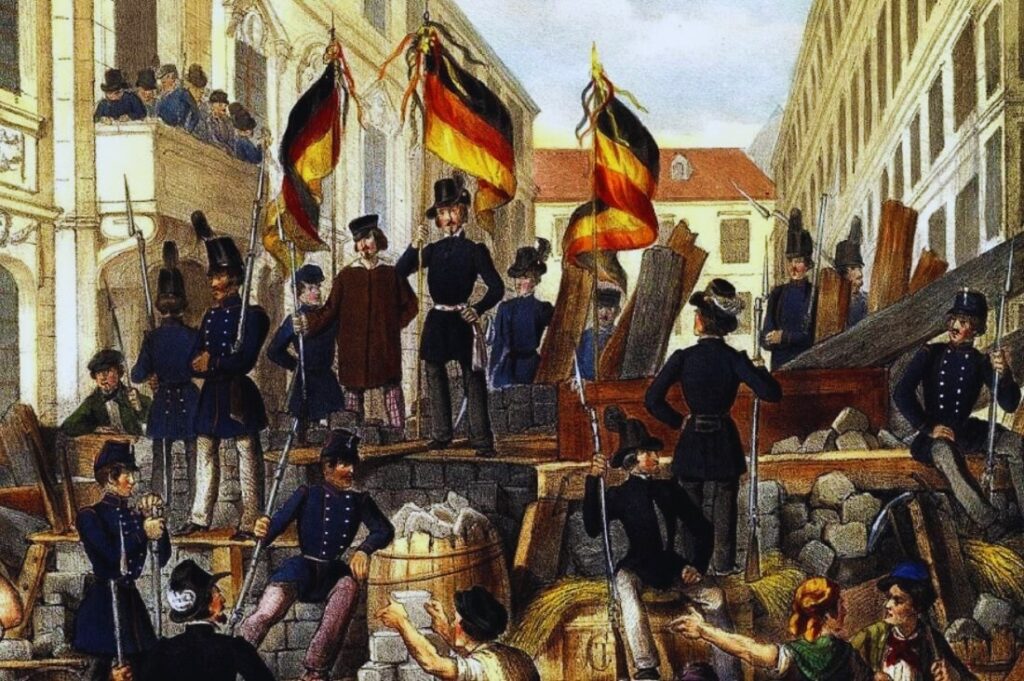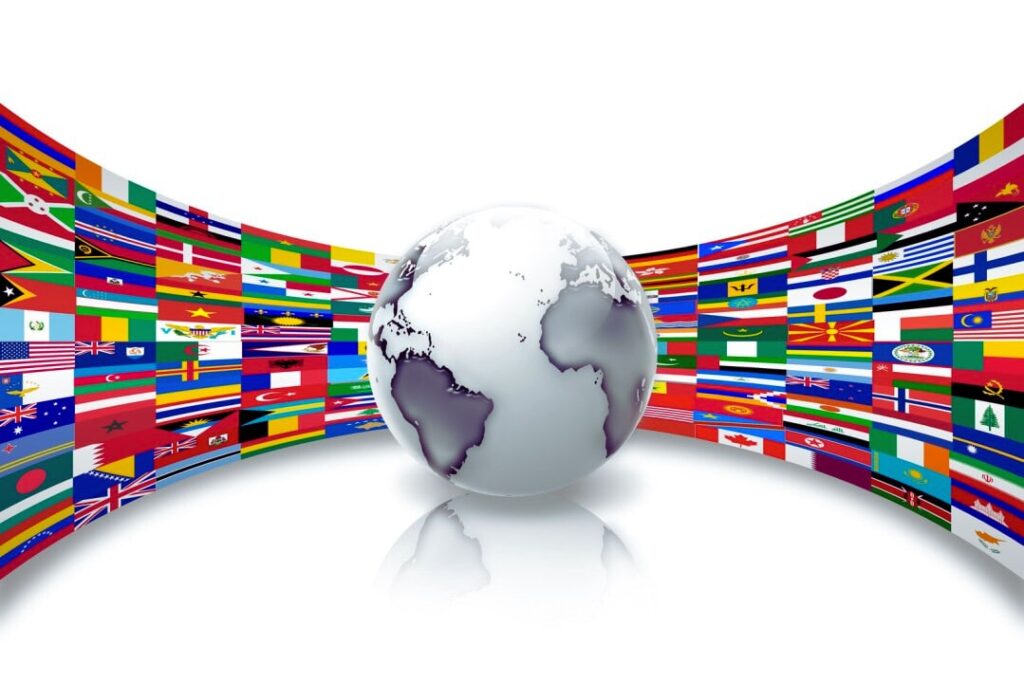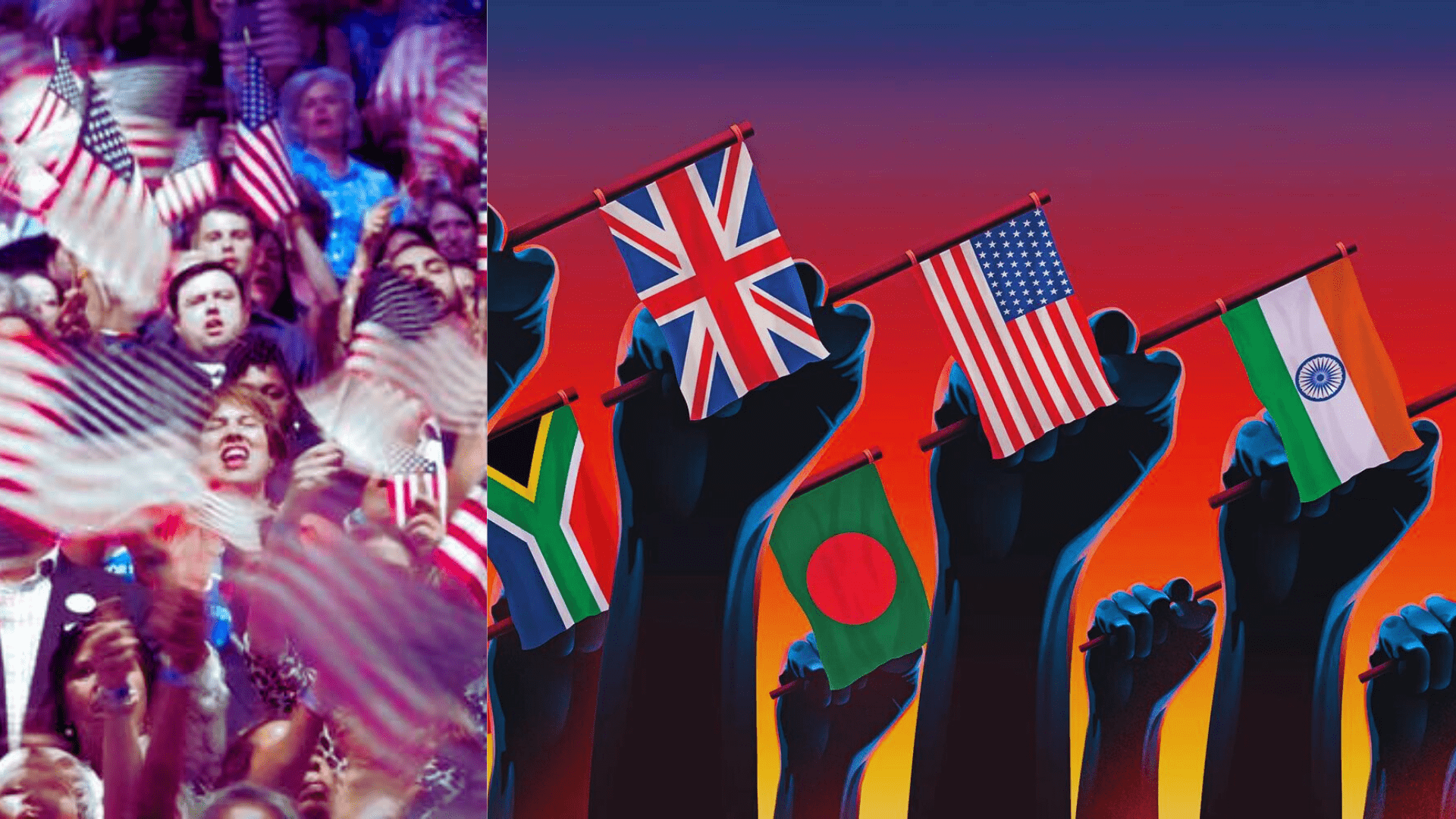Nationalism is an ideology and movement centered around the belief that the nation should align with the state. It prioritizes the nation-state above other individual or group interests, advocating for national unity, identity, and often, sovereignty. Nationalism is characterized by a shared sense of culture, history, language, and often, ethnicity, among the members of the nation. It has historically played a significant role in shaping political landscapes, driving independence movements, and influencing state policies. The movement assumes the division of society into distinct nations, each with autonomous characteristics and rights. The concept of nationalism emphasizes loyalty and devotion to one’s nation, surpassing other allegiances.
The Roots of Nationalism

The roots of nationalism are widely debated among scholars, but a consensus points towards its emergence in the late 18th to early 19th centuries. This period marked significant events such as the American Declaration of Independence, which is often cited as a foundational moment for nationalist ideology. Nationalism is fundamentally an ideology that asserts the loyalty and devotion of individuals to their nation-state above all other personal or group interests. It is based on the premise that humanity is divided into distinct, self-governing nations, each with its unique characteristics and sense of belonging. Nationalism emphasizes the shared identity, values, and goals of a people, often manifesting in a desire for self-determination or political sovereignty. The ideology is rooted in the belief in the nation’s distinct origins, nature, and value, viewing members of the nation as part of a larger social and political entity.
Types of Nationalism
Civic Nationalism

Civic nationalism, also known as liberal or democratic nationalism, is characterized by a form of nationalism that emphasizes shared values, beliefs, history, and territory as the foundation of a nation. Unlike ethnic nationalism, which bases national identity on common ancestry or race, civic nationalism defines the nation as a community of equal citizens committed to upholding democratic principles, such as freedom, tolerance, and individual rights. It is built around the concept of shared citizenship within a liberal-democratic state, where citizens participate actively in their civic duties and responsibilities. This form of nationalism supports traditional liberal values, including democracy and the rule of law, making it inclusive regardless of one’s ethnic or racial background.
Ethnic Nationalism
Ethnic nationalism is a form of nationalism where the nation is defined in terms of ethnicity. The core idea of ethnic nationalism is that the members of the nation share a common ancestry, culture, language, and often, a belief in a common descent. Unlike civic nationalism, which is based on shared values and political principles, ethnic nationalism is inherently more exclusive, as it bases membership of the nation on inherited traits and cultural heritage. This form of nationalism often emphasizes a return to or preservation of traditional customs and values and can be exclusionary towards those who do not share the same ethnic background. The boundaries between ethnic and civic nationalism are not always clear-cut in practice, as elements of both can coexist within the same national narrative.
Cultural Nationalism
Cultural nationalism emphasizes a shared heritage or culture as the foundation of a nation, rather than institutional statehood or specific ethnic or racial criteria. It centers on common cultural features such as language, religion, traditions, and historical heritage, promoting the preservation and appreciation of these elements as key to national identity. Cultural nationalists focus on cultivating a deep sense of pride and belonging among members of the nation through the celebration and reverence of cultural practices and historical legacies. This form of nationalism often seeks to protect and revive traditional cultures in the face of globalization or external cultural influences, advocating for education and policies that reinforce national culture.
Expansionist Nationalism
Expansionist nationalism is a radical and aggressive form of nationalism, often closely linked with ethnic nationalism (ethnonationalism). It advocates for the expansion of a nation’s territory or the reclamation of territories that are considered historically or ethnically linked to the nation. This ideology emphasizes heightened ethnic consciousness and seeks autonomous territorial growth, which can lead to conflicts with neighboring countries or regions. Expansionist nationalism is characterized by its focus on territorial gain, either through the annexation of lands or the recovery of areas that nationalists claim belong to their nation historically or culturally.
Economic Nationalism
Economic nationalism is an ideology focused on prioritizing the nation’s economic interests, often through state intervention in the economy. This can include policies aimed at domestic control of the economy, the use of tariffs to protect local industries, and measures to reduce reliance on foreign investments and imports. The goal of economic nationalism is to protect and enhance national economic sovereignty and promote domestic prosperity by supporting local businesses, industries, and workers. It seeks to limit foreign influence and competition in the economy, advocating for a country to become more self-sufficient and less dependent on international trade and investment.
The Impact of Nationalism
On Society
The impact of nationalism on society is multifaceted and varies depending on the context. Nationalism has been a powerful force in shaping identities, mobilizing political movements, and influencing state policies. Scholarly research highlights several key areas of impact:
- Identity Formation: Nationalism plays a critical role in identity formation, often emphasizing shared culture, history, and values among a group. This can foster a strong sense of community and belonging among citizens.
- Crisis Response: Studies suggest that crises can amplify nationalist sentiments, as communities seek solidarity and collective solutions. However, the relationship between crises and the rise of nationalism is complex and not linear.
- Global Resurgence: In recent years, there has been a noticeable resurgence of nationalist governments globally. This resurgence prompts a reevaluation of our understanding of nationalism’s implications for global politics and international relations.
- Human Rights: Nationalism’s impact on human rights can vary. In partial democracies, nationalism has been shown to negatively affect certain types of human rights, highlighting the importance of the political context in determining nationalism’s societal impact.
Overall, nationalism’s impact on society is nuanced, with both potentially positive effects in terms of identity and community building, and negative consequences, especially concerning inclusivity and human rights.
On Politics
Nationalism profoundly impacts world politics and international relations, shaping policies, state behavior, and global dynamics. Its rise can enhance state capacity for mobilization and potentially intensify conflicts, as nationalism often increases the intensity of wars by rallying citizen support. However, extreme nationalism may lead to international instability and violence, fostering a sense of superiority and xenophobia that can exacerbate tensions between nations. The post-1945 era witnessed a surge in the number of states due to nationalist movements in colonized regions, demonstrating nationalism’s power to reshape the global map.
Furthermore, contemporary concerns suggest that the resurgence of nationalistic attitudes could risk igniting conflicts unless managed with caution. Historically, nationalism has played a role in delegitimizing ethnic and racial hierarchies, and challenging imperial and foreign rule. Lastly, nationalism influences foreign policy, as internal nationalist factions within governments can drive policy preferences and outcomes, reflecting the internal political dynamics and priorities shaped by nationalist ideologies.
On the Economy
Economic nationalism emphasizes policies that prioritize a nation’s economic interests, often through protectionism, including tariffs, subsidies, and import quotas, to shield domestic industries from foreign competition. This approach seeks to create, strengthen, and defend national economies within the global marketplace, viewing economic strength as a key component of national power and independence. Historically, economic nationalism has been a reaction against economic policies perceived as harmful to a nation’s interests, as seen in India’s response to British free trade policies during the colonial period.
Nationalism influences governments’ foreign economic policies by infusing them with a social purpose, focusing on the well-being and prosperity of the nation’s citizens. However, the relationship between nationalism and the economy is complex, with nationalism acting as an ideology that can have significant economic implications, shaping policy decisions and economic strategies.
Nationalism in the 21st Century
The Digital Age and Nationalism

The digital age has transformed nationalism, making it more engaging and accessible to a wider audience. Digital media play a critical role in the rise of “new” nationalism, altering how national identities are constructed and expressed. This transformation has made nationalism not just an elite enterprise but an entertaining and interactive part of everyday life.
Particularly noteworthy is the way fun has become a metapractice in nationalist expressions, especially in contexts like that of Hindu nationalists in India. This approach integrates entertainment into the propagation of nationalist ideologies, intertwining fact-sharing with engaging and often humorous content. Moreover, the digital environment allows for a diversity of expressions on lifestyle and entertainment issues, while simultaneously promoting a unified nationalist agenda.
Globalization vs. Nationalism

In 2024, the dichotomy between globalization and nationalism is becoming increasingly pronounced, affecting global supply chains, political ideologies, and international relations. Globalization, characterized by open international borders, free trade, and cultural exchange, is facing a counter-movement in nationalism, which emphasizes national sovereignty, local cultures, and economic self-sufficiency. This shift is reshaping the geopolitical landscape, leading to deglobalization effects on the supply chain and a reconsideration of globalization in favor of reducing dependencies. Nationalism, while often associated with negative connotations like xenophobia, also carries positive aspects of self-determination and cultural preservation. However, the rise in nationalism is predicted to threaten democracy by encouraging protectionism and impacting global trade negatively.
Nationalism: The Good, The Bad, and The Ugly
Nationalism is a complex and multifaceted ideology with varied implications depending on its application and context. The Good aspect of nationalism is its potential to foster unity, pride, and a shared sense of identity among a nation’s people. It can also drive efforts towards national development and self-sufficiency. The Bad involves nationalism’s tendency to lead to protectionism and intolerance towards others, potentially hampering international cooperation and economic globalization. This side of nationalism may also inspire populist movements that combine national pride with xenophobia or discrimination. The Ugly part of nationalism can be seen when it escalates into aggressive, exclusionary policies or conflicts, undermining global peace and security. It’s essential to navigate the fine line between healthy patriotism and destructive nationalism, aiming for a balance that promotes both national interest and global harmony.
Conclusion: The Future of Nationalism
The future of nationalism seems poised to significantly shape political, economic, and societal landscapes globally. It’s forecasted to challenge the principles of democracy and liberalism, as identity politics and nationalist sentiments gain more ground in elections and governance. This rise is part of broader global trends including technological advancements, climate change, and shifts in work dynamics, which collectively contribute to a complex and evolving global scenario.
With nationalism fostering an environment of uncertainty, protectionism, and populist movements, the geopolitical risk landscape is expected to be marked by volatility. Additionally, the effects of nationalism and the movement towards deglobalization are anticipated to realign global power dynamics and reshape geopolitical landscapes, potentially impacting global supply chains. Despite these challenges, the future path of nationalism could also open dialogues on sovereignty, identity, and global cooperation, framing a new narrative for international relations and domestic policies.
Read also: What is End-to-End Encryption?
FAQs
Q: Is nationalism always a negative force?
Not necessarily. While it can lead to division and conflict, it can also inspire unity and pride within a nation.
Q: How does globalization affect nationalism?
Globalization challenges nationalism by promoting interconnectedness and universal values, leading to a debate on maintaining national identity in a globalized world.
Q: Can someone be a nationalist and still support global cooperation?
Yes, it’s possible to have pride in one’s country while recognizing the benefits of cooperating and engaging with the global community.
Q: Has nationalism changed in the digital age?
Yes, digital platforms have given nationalism new ways to express itself, amplifying both its unifying and divisive aspects.
Q: What’s the difference between patriotism and nationalism?
Patriotism is generally seen as love for one’s country and pride in its values, while nationalism is more about asserting the interests and culture of one’s nation, sometimes at the expense of others.




